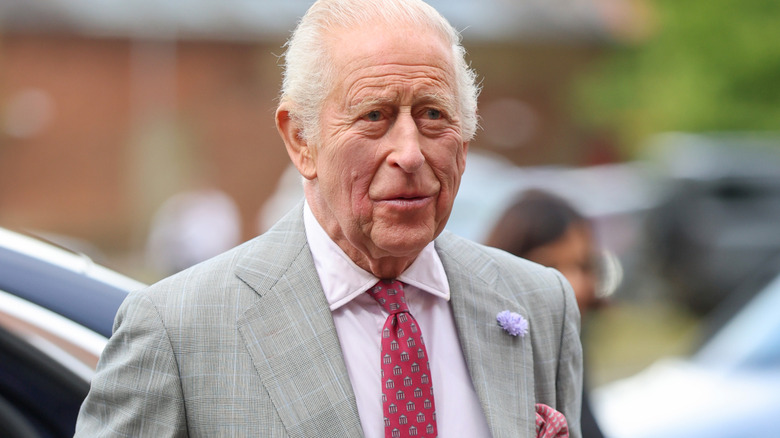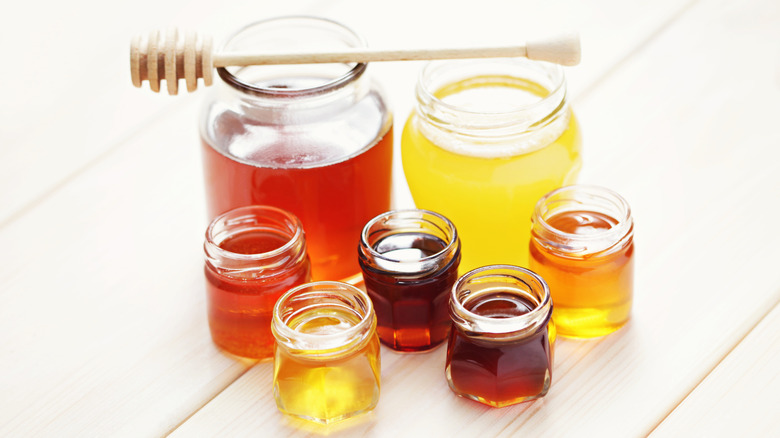King Charles Has An Unusual Honey Request With Each Morning Meal
King Charles III has long been famous for his enthusiasm about organic gardening and healthy eating. The King was also known to skip lunch, for years. While the late Queen Elizabeth II was fond of scrambled eggs, or maybe a bowl of Special K cereal (Special K was also President Joe Biden's favorite breakfast), King Charles is partial to homemade bread and fresh fruit grown at his family home, Highgrove, an absolute wonderland of gardens and orchards in Gloucestershire. His majesty is also reportedly so wild about honey that he likes to have no less than six varieties available at his breakfast table — even when he is traveling on royal duties.
Queen Elizabeth II's chef, Graham Newbould, who revealed her son's honey habits, added that when King Charles travels, he requests a special breakfast box to accompany him. Along with the six varieties of honey, it usually includes dried fruit and muesli, which is basically a mixture of nuts, grains, oats, seeds, and more dried fruit. It's most often combined with milk or yogurt, and eaten warm or cold. Presumably, King Charles drizzles a bit of honey over this breakfast treat, and maybe opts for a different type for his morning cup of tea. But why so many types of honey? For one, when you're the King of England, you can ask for anything you want when it comes to breakfast. And, while we don't know exactly what kinds of honey King Charles requires, it's reasonable to guess that they might include those made on the royal family's estates — and that he might be in the mood for any one of them, at any time.
Honey fit for a king
It would probably surprise very few people if King Charles kept some of the most expensive honeys in the world on his breakfast table. These could include a rare Turkish varietal known as Elvish honey that is produced in a remote highland region that borders the Black Sea, and sells for thousands of dollars per pound. Or, perhaps, he enjoys a little highly hyped manuka honey from New Zealand for its antibacterial properties. Still, it's more likely that King Charles enjoys honey produced much closer to home, seeing as he is a huge advocate for sustainability and local ingredients.
Beehives exist at several of the royal's residences, including Buckingham Palace, Clarence House, Sandringham, and Highgrove, where royal bees enjoy unparalleled posh accommodations — that is, hives that are beautifully carved from English oak. They yield so much honey that much of it is sold to the public, including multiple varietals like a creamy, citrusy Royal Estate honey; a floral Royal Orchard Summer honey; and a Transylvanian Acacia honey, among others. King Charles' six breakfast honey varieties could certainly include any one of these, or maybe even a lavender-scented honey from the bees at Sandringham. With these kinds of options, I think I might insist on six types of honey for breakfast, as well — for fear that I'd never be able to try them all, if I didn't.

